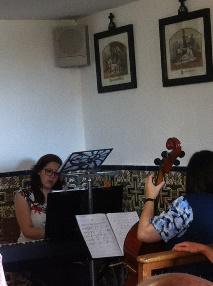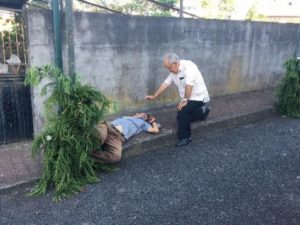– Brought to you by Fr. Bernardino Andrade (bernardinodandrade@gmail.com)
“Throw them out! Throw them out!”
The year was 1770, and in a small Italian church, two altar boys prepared for Benediction. Annibale Della Genga and Francesco Castiglioni entered the sacristy, put on their albs, and grabbed the heavy brass candlesticks.
And then they began to bicker, arguing over who would stand on the priest’s right for the procession. Their quibble escalated into a shouting match. Alarmed parishioners turned their heads to the back of the Church to see the commotion, and that’s when it happened: Castiglioni cracked Della Genga over the head with his candlestick. Blood dripped from Della Genga’s injury, and both boys began shoving each other.
Shocked, parishioners screamed: «Throw them out! Throw them out! ». So, the embarrassed priest grabbed the boys, led them to the door, and tossed them out of the church.
Now fast-forward several decades to 1825… Half a million-people gathered in Rome for the great Jubilee celebration. The Jubilee occurred every 25 years, and its grand climax was the opening of the Holy Door at St. Peter’s Basilica. Traditionally, the Pope would knock on the door three times with a large silver hammer and sing: « Open unto me the gates of justice! »; on the third knock, the door would swing open and the Pope would lead his people through. The symbolism was rich: pilgrims from all over the world coming back home to the Church, following their leader through the great porta fidei, the “door of Faith”.
That Jubilee year, in front of thousands of pilgrims, Cardinal Della Genga made his way to the door. It was fifty-five years after the candlestick incident. Cardinal Della Genga who had become Pope Leo XII neared the door. Turning to the Cardinal beside him – Cardinal Castiglioni –, the Pope said: « Let me have the hammer. ». With a sly grin, Castiglioni replied «Just like I gave you the candlestick? ».
Amazingly, four years later Castiglioni succeeded his friend and became Pope, taking the name Pius VIII. Now if you told any of those pew sitters back in 1770 that they had two future-Popes in the back of their church, they’d have laughed you out of the building: “Those two boys? The ones shoving and whacking each other with candlesticks? ”.
I Am Also A Suspect
A Bishop was sailing for Europe on one of the great transatlantic ocean liners. When he went on board, he found that another passenger was to share a cabin with him. After unpacking his bags, he went to the purser and inquired if he could leave his gold watch and other valuables in the ship’s safe. He explained that he had just met the man who was to occupy the other berth in his cabin and he was afraid that the man might not be trustworthy. The purser smiled, accepted the valuables and remarked: « It’s all right, Bishop, I’ll be very glad to take care of them for you. The other man has just been up here and left his valuables for the same reason! »
Love and Peace, Fr. Bernardino Andrade

